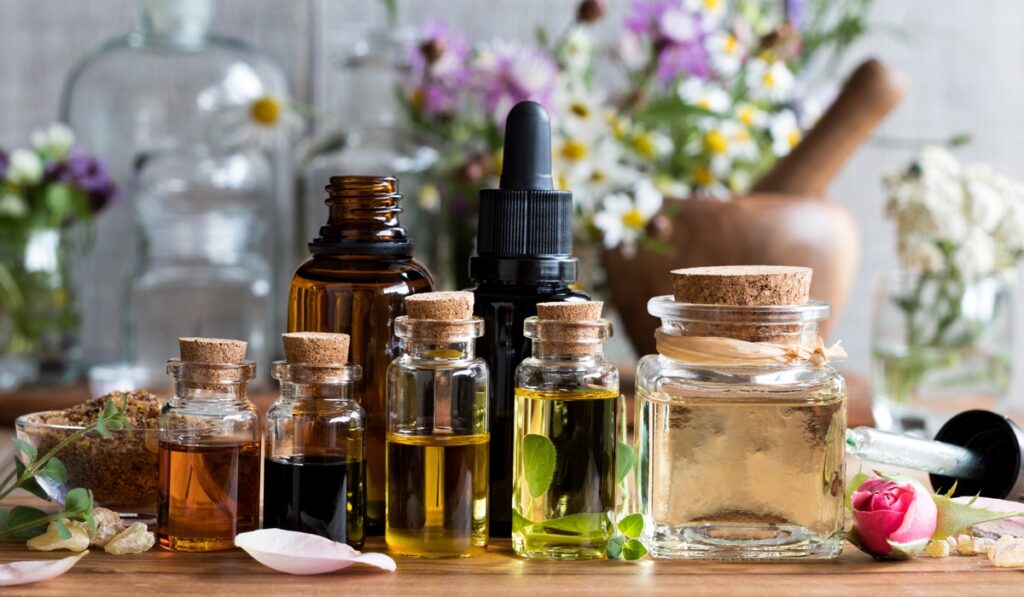Natural perfumes are a good alternative for people with sensitive skin or perfume allergies. Also, people with high ethical standards may prefer natural perfumes as long as those natural perfumes are cruelty-free.
RELATED: Everything You Need To Know About Vegan Perfumes
Moral justification is not the only reason to try natural perfumes. You also have some health and environmental gains when you use natural perfumes.
You may notice that you have headaches, nausea, or feel dizzy when you smell some perfumes. Usually, this is due to certain fillers in synthetic perfumes. Natural perfumes are not likely to give you the same adverse reactions.

For aromatherapy benefits, natural perfumes are more likely to give you better mood enhancement and relaxation.
What are natural perfumes?
The fact that perfume is labeled ‘natural’ does not necessarily mean it’s true. Many brands fall into using terms loosely for marketing while some deliberately even set out to deceive.
Natural perfumes are not defined by law and the dictionary does not have a rigid category of fragrances known as natural perfumes.
For a perfume to be considered natural, it only needs a mere 1% of its ingredients to be natural. On the other hand, for a perfume to be considered organic, only 20 % of the ingredients need to be organic.
So, natural would mean that the perfume is from a natural and renewable source. Organic perfumes would usually go further to specify that the natural ingredients were made without pesticides or insecticides.
How to shop for a natural perfume.
When shopping for a natural perfume, you should know that the earlier an ingredient appears on the list on the label, the higher its concentration is in that perfume.
Also, many brands would rather list the scientific names of an ingredient. You’ll encounter a lot of Latin. To be sure that it’s really the natural ingredient you want, you could look it up in a dictionary.
In the alternative, you can also see if certifying agencies have approved the perfume. But this should not be taken as a holistic test in itself. This is because bigger brands are more willing to go through the hurdles of getting approved by these agencies while smaller companies may not have the resources to get the approval and certifications.
However, you should know that an ingredient being natural does not necessarily make it safe even though a bunch of people think that it does.
Read also: Perfume Allergy: Symptoms And What You Need To know
The downside to natural and organic products is that they tend to have a shorter shelf life, they suffer discoloration in the sun, they cost more compared to their synthetic counterparts, and they are more sensitive to temperature changes.
Other terms often confused with “natural perfume”
2. “Pure perfume” refer to the concentration of fragrance oil in a perfume. A high concentration would be regarded as pure.

